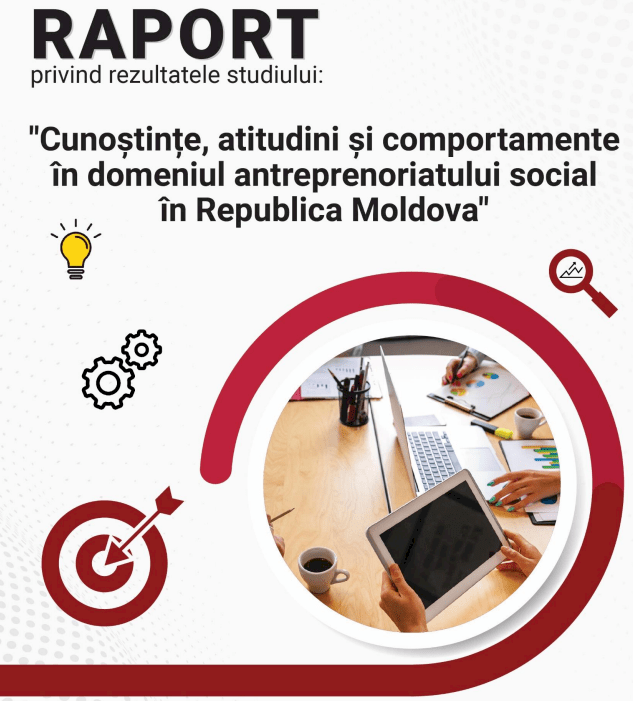Public presentation of the study “Knowledge, attitudes and behaviours in the field of social entrepreneurship in the Republic of Moldova” with EU support

The concept of social entrepreneurship is not known and fully understood by the population of our country, nor by the officials of state institutions. This is one of the resolutions of the Study “Knowledge, attitudes and behaviours in the field of social entrepreneurship in the Republic of Moldova”, the results of which were presented at a press conference, on 20 December 2022, in Chişinău.
The study analyses the knowledge, attitudes and behaviours in the field of social entrepreneurship of the following categories of people: experts in the field, the general population, consumers of the products/services of social enterprises, CSOs not involved in social entrepreneurship activities, but also those involved, representatives of the Enterprises Small and Medium, representatives of LPA level I and II.
According to the findings of the Study, more than half of the general population stated that they had not heard of social entrepreneurship, and only one in five mentioned that they could define this notion. At the same time, more than 90% of the general population has a positive attitude towards social enterprises, considering them necessary and beneficial because they help disadvantaged people integrate into society. Two-thirds of the respondents would rather buy a product/service from a social enterprise than from a regular enterprise, if the product had good quality and the price – advantageous.
The consumers of social enterprise products/services believe that the whole of society benefits as a result of social enterprise activity and that there should be more social enterprises, as they contribute to the employment of disadvantaged people and solve pressing social problems in the community, which are often ignored by authorities.
The concept of social entrepreneurship is poorly known by LPA representatives, as most of them cannot define it. The level of collaboration between LPAs and social entrepreneurs is quite low – ⅔ of LPA representatives do not know any social entrepreneurs. Also, LPA representatives do not have information about public policies, fiscal policies or the regulatory framework in the field of social entrepreneurship.
The research is comprehensive and was carried out on a sample of 1142 general population, 109 consumers of social enterprises, 106 CSOs not involved in social entrepreneurship, 109 representatives of small and medium enterprises, 105 representatives of public authorities.
The findings of the study can be accessed at the following link: https://www.keystonemoldova.md/ro/publications-and-resources/publications/
The study was carried out as part of the project “Using the potential of civil society for the promotion and development of social entrepreneurship in the Republic of Moldova”, implemented by the East European Foundation in partnership with the Contact Centre and Keystone Moldova. The project is financed by the European Union and co-financed by Sweden. The project contributes to the creation of an ecosystem favourable to the development of social entrepreneurship in the Republic of Moldova.